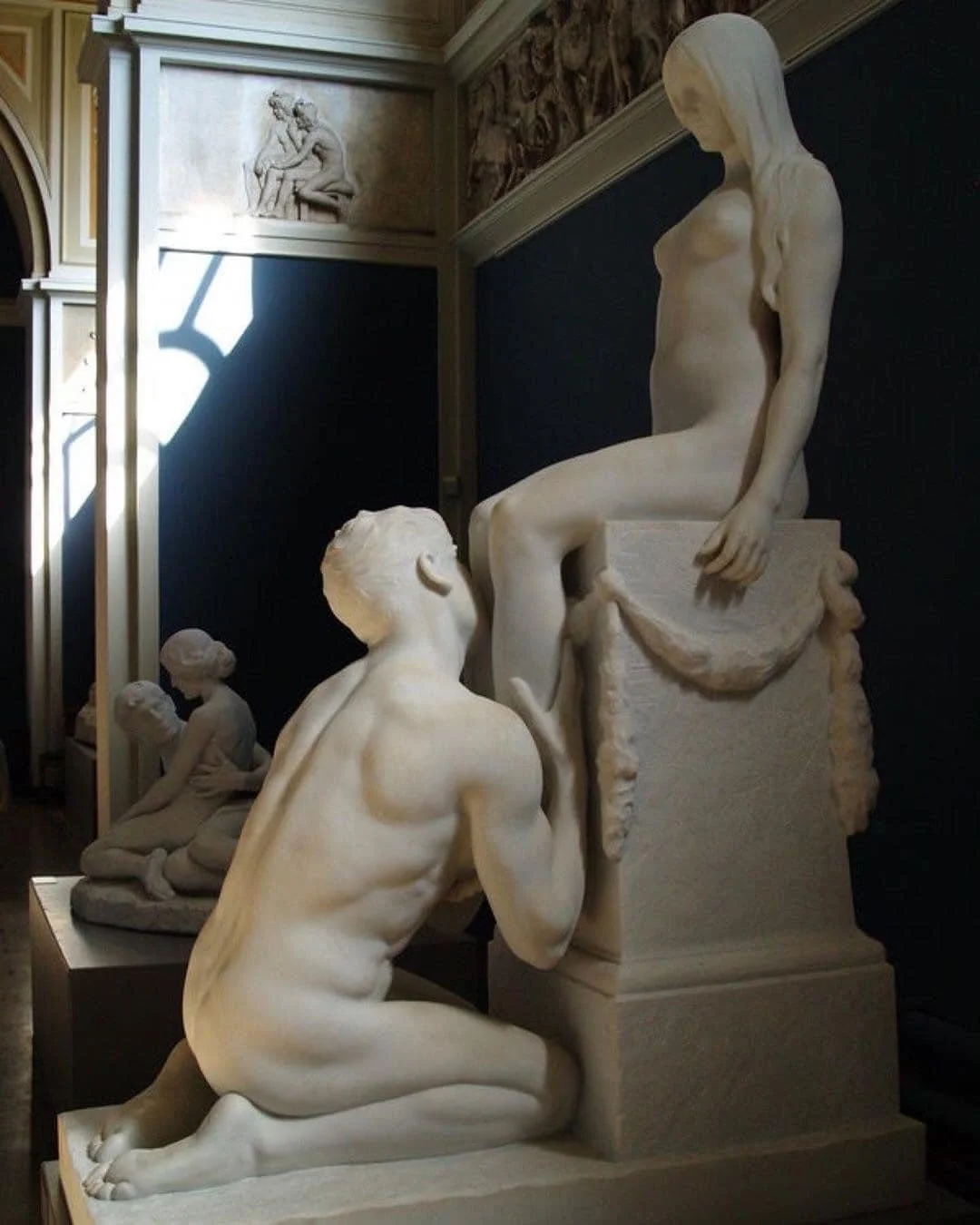Why Goddess Worship Triggers People (& What It Really Means)
There’s a certain look people get when you speak the word “Goddess” with reverence.
A twitch behind the eyes.
A tightness in the jaw.
A polite smile… or a slow recoil.
To say “I worship the Goddess” in public is still, in many spaces, to invite misunderstanding, projection, or outright dismissal.
But why?
Why would a being who represents beauty, love, life, creation, sensuality, and wisdom be so triggering?
Let’s go deeper.
Patriarchy Trained Us to Forget Her
For over 2,000 years, the sacred feminine has been systematically erased from the dominant spiritual story.
In the Abrahamic lineages, God is almost exclusively referred to as “He.”
Eve is blamed. Mary is deified only if she’s obedient and silent.
Lilith is cast out altogether.
Worship of the feminine was labeled idolatry, witchcraft, or heresy.
But the truth?
Long before the Father God reigned supreme, the Mother was known, loved, and honored in temples across the Earth.
To worship Her now is to remember what was buried.
And that memory threatens the systems that benefit from our forgetfulness.
She Cannot Be Controlled — and That Scares People
The Goddess is not tame.
She is wild ocean, fertile soil, storm winds, bleeding moon.
She is birth and decay, sex and death, beauty and terror.
She is the force behind all becoming, and She answers to no man.
People fear what they cannot dominate.
And so, rather than bow to Her in awe, they label Her dangerous.
Rather than surrender to Her mystery, they call Her “too much.”
But those of us who’ve touched Her know —
She is the pulse of everything real.
Repressed Feminine Energy Reacts When It Sees the Real Thing
Every being carries both feminine and masculine energy.
But in a world that rewards control, productivity, and logic, the inner feminine — the part of us that feels, flows, and trusts — has often been exiled.
When people witness someone in full Goddess embodiment, it touches the parts of themselves they’ve buried:
Their shame around pleasure
Their fear of surrender
Their disowned intuition
Their unloved softness
And rather than meet those parts with love, they often project their discomfort outward.
Triggers are simply reflections of what hasn’t yet been integrated.
Colonization Erased Her Names from the Land
The trauma isn’t just personal — it’s ancestral.
Everywhere Goddess cultures once thrived — Kemet, Sumer, India, the Americas — there was invasion, erasure, and rewriting.
Temples were turned to rubble.
Priestesses were burned.
Matriarchal wisdom was cast as backwards.
Even now, the echo of those centuries lives in our cells.
So when you rise in Her name, you awaken the collective memory of exile and suppression.
Some souls aren’t ready to feel all of that — so they flinch at Her name.
Goddess Worship Is Not Pedestal Worship — It’s Ego Dissolution into the Whole
Let’s be clear:
Goddess worship is not about being worshipped.
It’s not about placing the feminine above the masculine.
And it’s not about inflating identity.
True reverence for the Goddess dissolves the ego, not inflates it.
She is not here to be admired from afar on a golden pedestal.
She is here to be remembered within — as the pulse of the Earth, the blood in your veins, the breath between your thoughts.
When you worship the Goddess, you don’t separate yourself from Her.
You merge.
Your sense of self widens to include all beings, all cycles, all life.
You stop asking, “Am I enough?” and begin remembering, “I am That.”
This isn’t about personal power.
It’s about participating in the sacred field that births stars, breaks hearts open, and calls the dead back to life.
The Goddess is not here to be possessed or propped up.
She is the living current we surrender to.
She is what remains when the self melts into devotion.
So, What Is Goddess Worship?
It’s not rebellion.
It’s not aesthetic.
It’s not “anti-masculine.”
It’s remembrance.
It is the choice to see the Divine not just in the heavens but in your blood, your breath, your belly, and the Earth.
It’s knowing that Source wears many faces — and sometimes, She bleeds.
Sometimes, She moans.
Sometimes, She speaks through your intuition, your heartbreak, your becoming.
To worship the Goddess is to say:
“The Most High is not separate from the feminine — She is part of the Whole.
I honor Her as an equal face of the Divine.
And in doing so, I reclaim the parts of myself I was told to shame.”
Final Words (And a Blessing)
If you are one of those who has felt the sting of being shamed, dismissed, or mocked for loving the Goddess — I see you.
And I say this:
You are not delusional.
You are not unholy.
You are remembering something sacred the world forgot.
So keep lighting your altar.
Keep pouring your libations.
Keep listening to Her.
You’re not wrong — you’re ancient.
Explore your own connection to the Mystery within you
